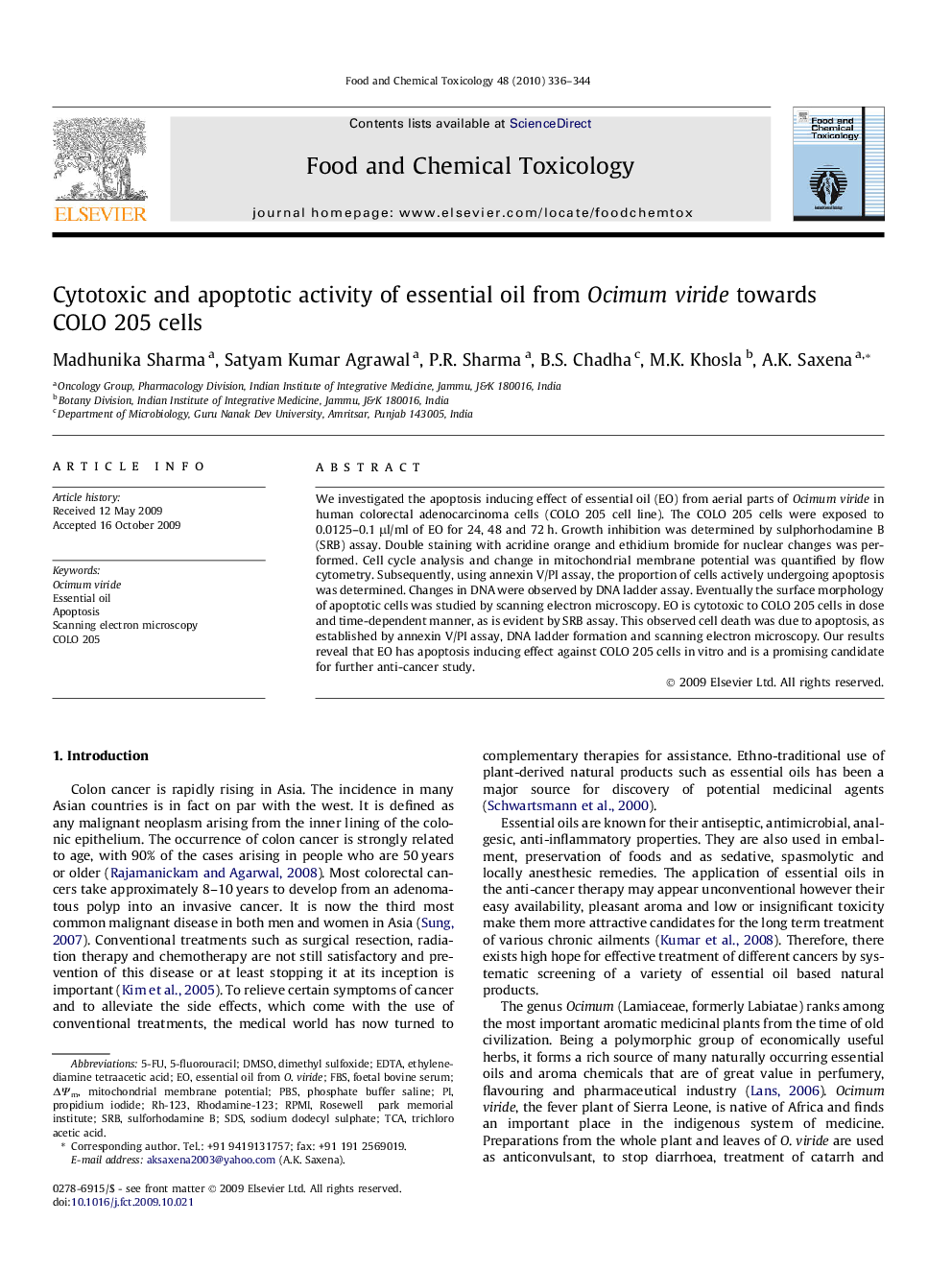| Article ID | Journal | Published Year | Pages | File Type |
|---|---|---|---|---|
| 2585867 | Food and Chemical Toxicology | 2010 | 9 Pages |
We investigated the apoptosis inducing effect of essential oil (EO) from aerial parts of Ocimumviride in human colorectal adenocarcinoma cells (COLO 205 cell line). The COLO 205 cells were exposed to 0.0125–0.1 μl/ml of EO for 24, 48 and 72 h. Growth inhibition was determined by sulphorhodamine B (SRB) assay. Double staining with acridine orange and ethidium bromide for nuclear changes was performed. Cell cycle analysis and change in mitochondrial membrane potential was quantified by flow cytometry. Subsequently, using annexin V/PI assay, the proportion of cells actively undergoing apoptosis was determined. Changes in DNA were observed by DNA ladder assay. Eventually the surface morphology of apoptotic cells was studied by scanning electron microscopy. EO is cytotoxic to COLO 205 cells in dose and time-dependent manner, as is evident by SRB assay. This observed cell death was due to apoptosis, as established by annexin V/PI assay, DNA ladder formation and scanning electron microscopy. Our results reveal that EO has apoptosis inducing effect against COLO 205 cells in vitro and is a promising candidate for further anti-cancer study.
